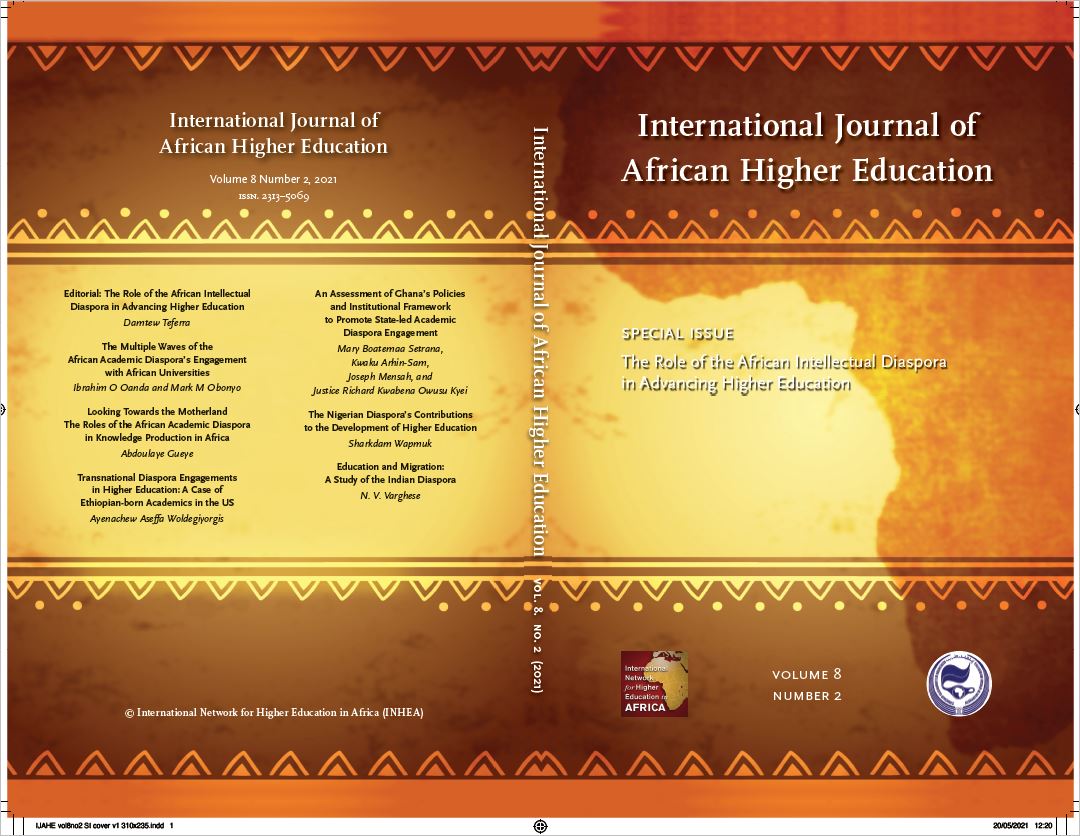The Multiple Waves of the African Academic Diaspora’s Engagement with African Universities
DOI:
https://doi.org/10.6017/ijahe.v8i2.13471Abstract
This article analyses the various historical phases in the evolution of the
African academic diaspora’s engagement to support the development of
higher education in Africa. It examines the drivers and motivation for such
engagement and its implications for higher education development on
the continent. The data were derived from a critical review of secondary
sources, supplemented by primary observations by one of the authors who
is engaged in a programme that supports diaspora academics to travel to
African universities for engagement, as part of the third wave. The analysis
of the secondary material shows that while the first wave of engagement was
driven by a strong sense of Pan-Africanism at the global level and laid the
foundation for the establishment of universities across the continent, the
second wave became trapped in Cold War rivalries that limited engagement
and drove more academics from African universities into exile, mainly in
Europe and North America, thus swelling the ranks of diaspora academics.
The third wave has been caught up in a similar situation. While the forces
of globalisation and internationalisation that are driving this wave of
diaspora engagement have the potential to support African universities to
achieve international standards, they can equally undermine and mute the
desire for higher education decolonisation. The article recommends that
African countries and higher education institutions should play a central
role in designing the broad policy context that drives engagement and that
the activities undertaken by African diaspora academics should align with
national higher education priorities.
Downloads
Published
How to Cite
Issue
Section
License
Copyright (c) 2021 Ibrahim O Oanda, Mark M Obonyo

This work is licensed under a Creative Commons Attribution-NonCommercial-NoDerivatives 4.0 International License.

